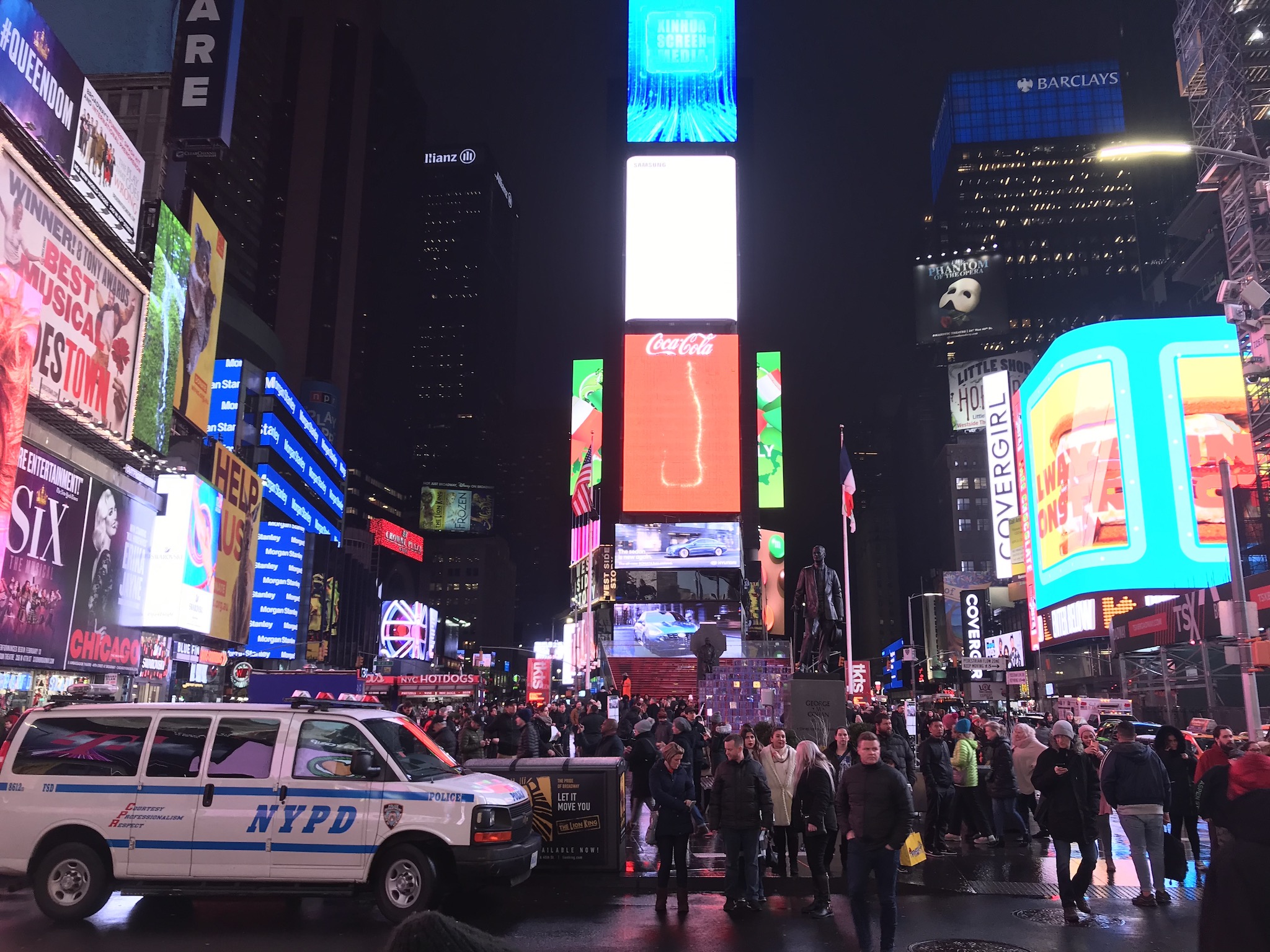

This article is automatically translated.

Kazuma Sasaki and Yokoshima from Dwango Media Village attended the international conference AAAI2020 held in New York in February. In this article, we would like to introduce the event and provide a digest of the research presentations we attended.

AAAI2020 is an international conference organized by the Association for the Advancement of Artificial Intelligence (AAAI). It is a prominent international conference in the field of artificial intelligence research, with nearly 8,000 paper submissions and over 4,000 participants at this year’s AAAI2020 in New York. Unfortunately, many could not attend due to the impact of the COVID-19 pandemic, but the Hilton Hotel venue was still bustling with students and researchers.
The highlight of the event was the keynote speeches by the 2018 Turing Award winners, Professors Yoshua Bengio, Geoffrey E. Hinton, and Yann LeCun. These three are renowned for their significant contributions to the development of deep learning. Professor Bengio discussed the current state of deep learning as an unconscious and intuitive system, suggesting a shift towards more conscious, long-term, and logical thinking systems. Professor Hinton introduced the Capsule Network, a model for images that retains spatial information of features and their relative relationships. This model focuses on human visual functions, which current Convolutional Neural Networks used in image recognition and generation do not address. Professor LeCun discussed Self-supervised Learning, which models the dynamics of learning data itself, in contrast to the supervised learning that deep learning excels at. Basic reinforcement learning provides rewards as teacher signals for the agent’s behavior, but this information is very limited. In Self-supervised Learning, more abundant teacher signals are obtained by predicting future data. Through their lectures and panel discussions, it was evident that there is a strong focus on learning from human intelligence. The current capabilities of deep learning are still limited, and functions such as consciousness, vision, and decision-making found in human intelligence are yet to be fully realized.
Kazuma Sasaki (kzmssk) and Yokoshima (ninhydrin) summarized some of the interesting research presentations they attended into slides. The former focused on reinforcement learning and game AI, while the latter centered on Computer Vision.

In addition to what we introduced in this article, there were many other interesting research topics. Counting the number of accepted papers, including posters, there were over 1,500, covering a wide range of sessions. The diversity of fields within artificial intelligence research was truly felt. We look forward to next year’s conference.